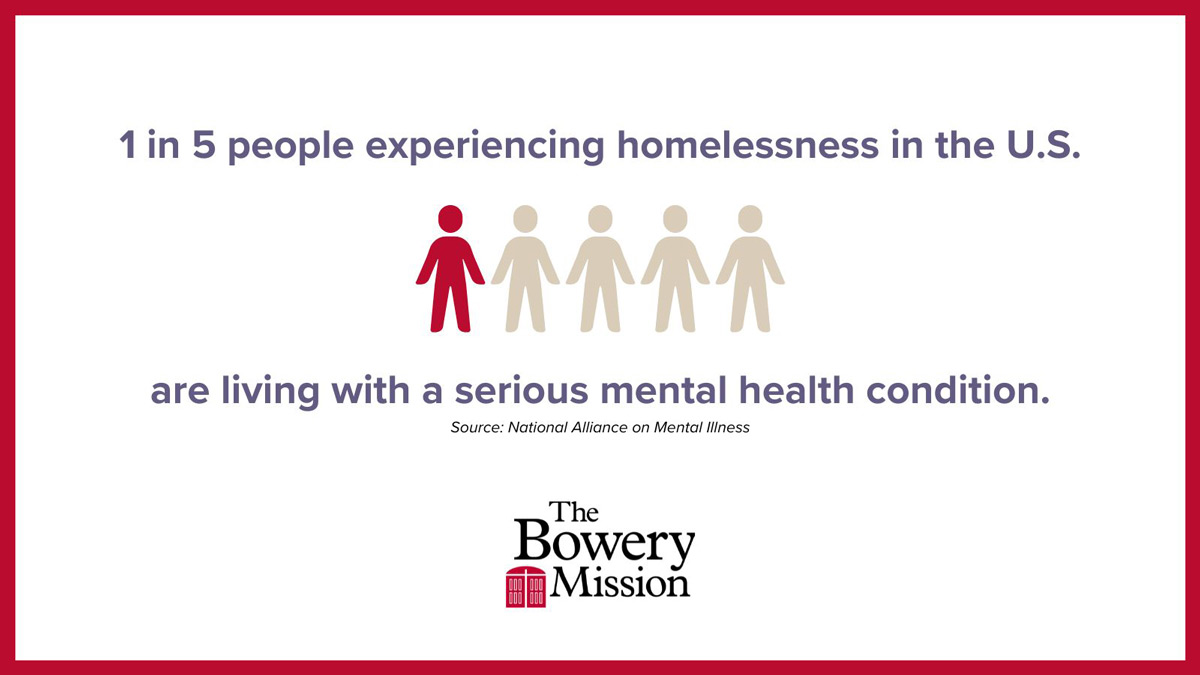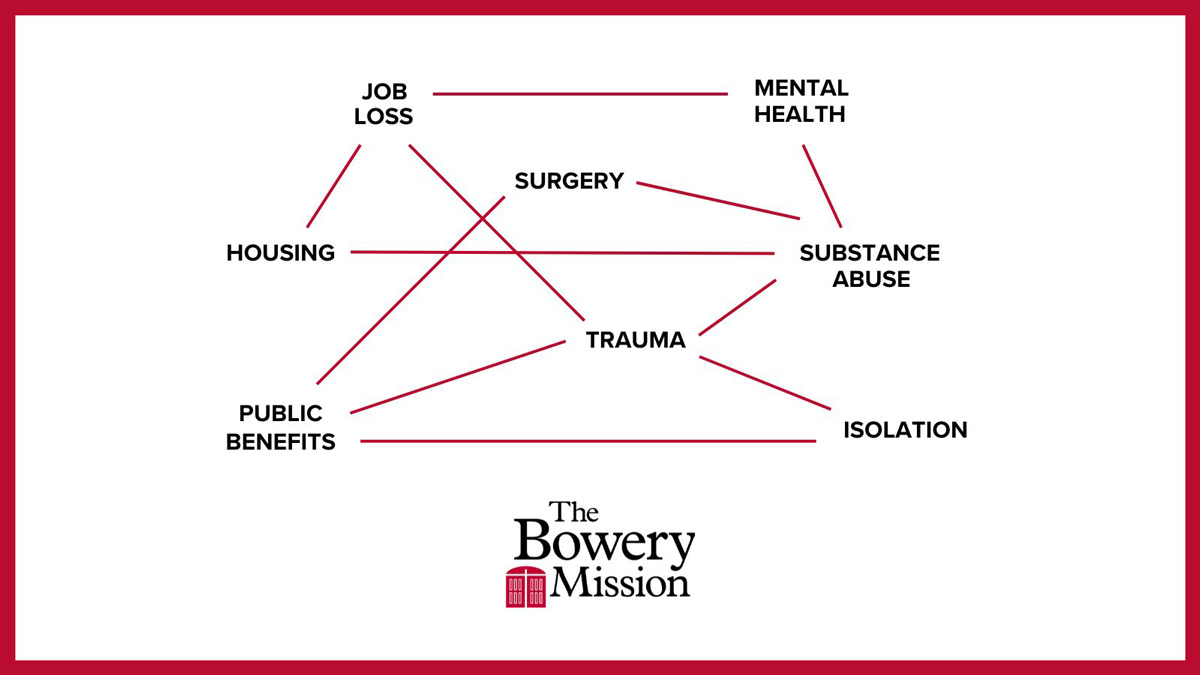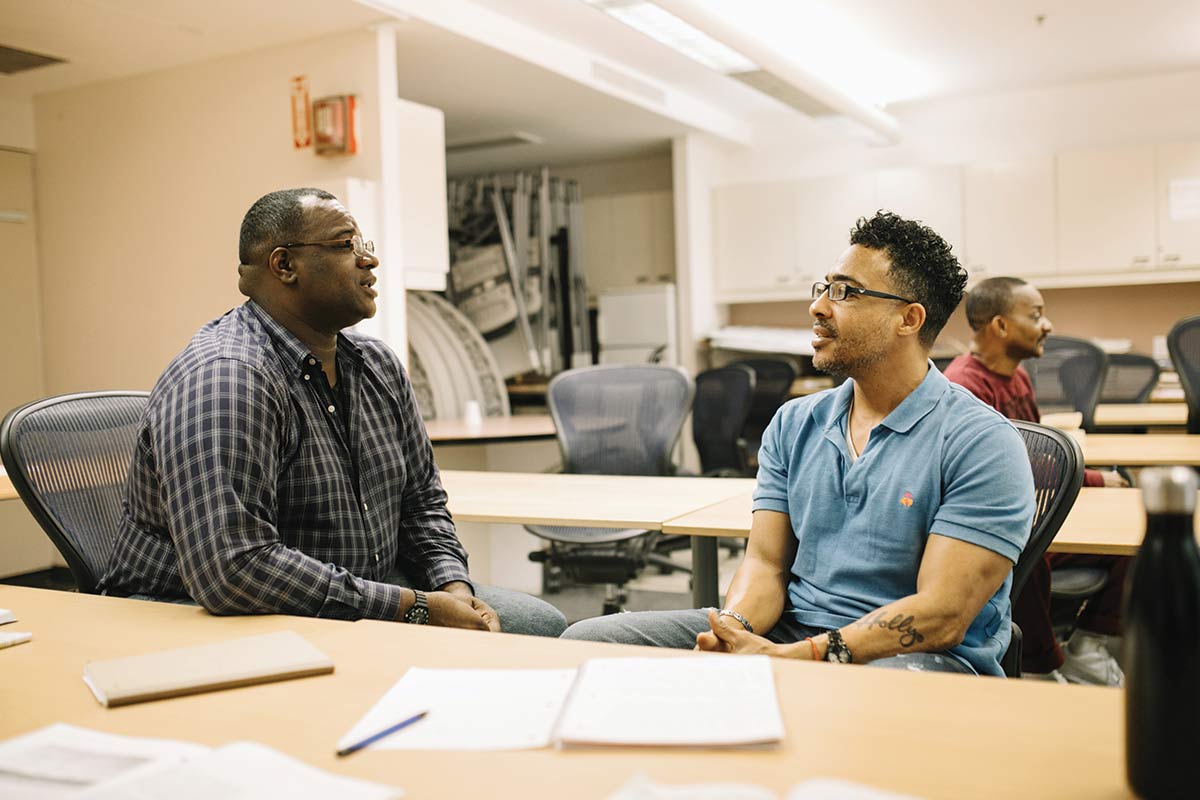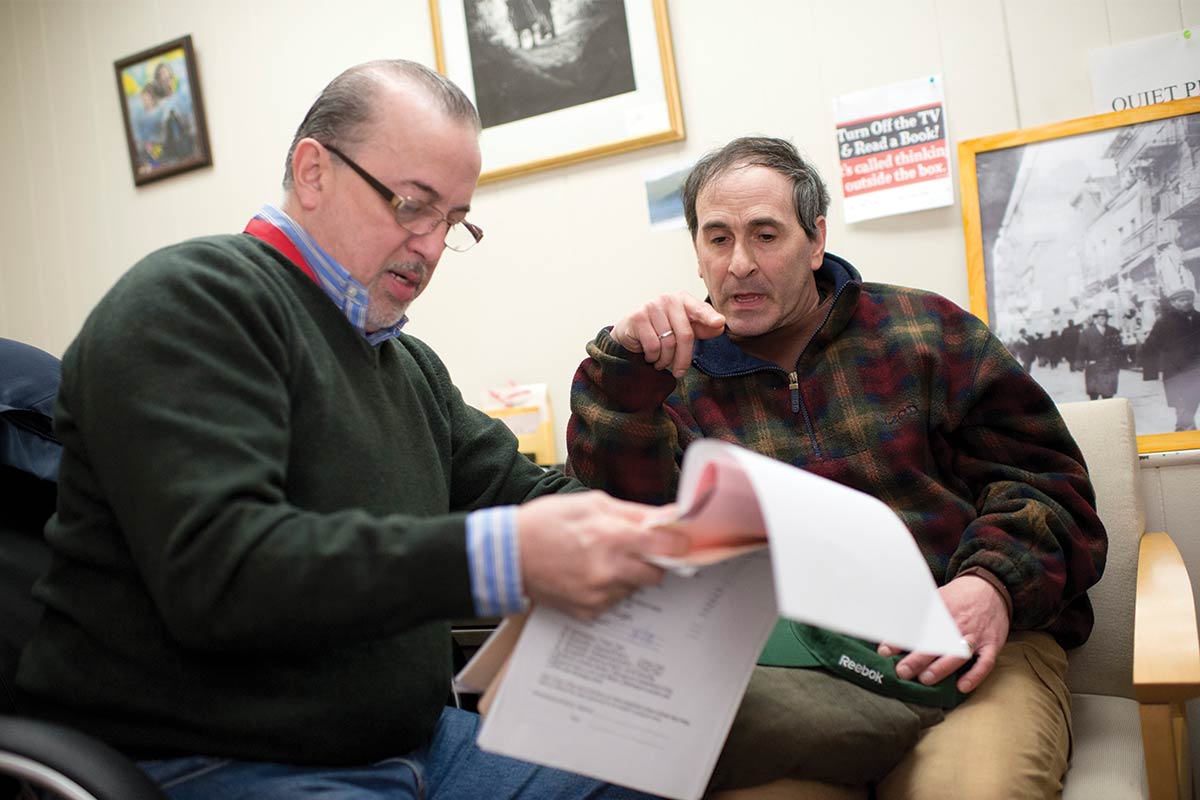In this guest post, one of The Bowery Mission’s social workers shares insights from her frontline work at the Mission, where she provides clinical support to individuals overcoming homelessness, hunger and other crises.
Within the Red Doors of The Bowery Mission where I serve as a social worker, we encounter individuals daily who are deeply overwhelmed by the challenges they face. During my appointments, as I help guests identify next steps for overcoming homelessness, hunger and other crises, I often observe people grappling with intense mental and emotional distress.
Sometimes, it’s evident in their eyes — the anxiety, the fatigue, the sheer exhaustion from bearing the weight of their struggles. Other times, guests arrive visibly shaken from recent traumatic events, or they appear disconnected, lost in thought as they try to process their situation.
As a social worker, my role is to journey alongside each guest through this moment of crisis, providing a compassionate and helpful presence as they work to resolve each challenge. But how do we simultaneously work towards solutions while acknowledging and caring for the pain they are experiencing right now?
Prioritizing urgent needs
Whenever we serve guests who are struggling mentally and emotionally, it’s critical that we pause and evaluate the entirety of their circumstances, taking into account any factors that might be influencing their mental state. For our guests facing homelessness, we know their stress and mental well-being have been profoundly affected by their lack of safe shelter.
On a fundamental level, housing impacts mental and physical wellbeing. The National Alliance for Mental Illness cites that about 1 in 5 people experiencing homelessness in the U.S. have a serious mental health condition.

When someone living on the street is having a bad day, they simply do not have a safe place to decompress. Their environment is often uncontrollable and unpredictable, making health, financial, legal and other problems spiral and worsen.
If we are to improve public health, we must begin by addressing this fundamental human need for shelter. While homelessness is a complex societal issue, clinical social work at The Bowery Mission starts with addressing the immediate needs of the person in front of us who is managing mental stress without a place to live.
Taking things one step at a time
When people are struggling emotionally, another part of my job is to help them untangle the challenges of their situation, walking with them one step at a time. About a year ago, I began working with a guest at The Bowery Mission who was facing a number of interrelated difficulties.
While his initial request was for help with public benefits like SNAP, Medicaid and Cash Assistance, our conversation unearthed deeper challenges. He needed surgery to regain his ability to work, but lacked means to afford it. He also needed housing for his recovery, but was determined to avoid public shelters as they could negatively impact his sobriety.
His situation presented a conundrum: how could he undergo surgery without a job, health insurance or an environment conducive to recovery? As we began chipping away at the problem, I could see him doing his best to remain composed, despite the increasing strain on his mental health.

So many of the people I serve are facing a complicated web of challenges, like the one above.
The beauty of social work, in my experience, is to make the large, overbearing burdens on our clients as small as possible so they can be addressed. This means holding space for complexity and interconnection while seeking out specific issues within the messy web to identify a starting point for solutions.
Social work is also about empowering clients to help themselves. After this guest and I independently researched possible solutions, I was able to connect him with resources for health insurance and transitional housing. He then began advocating for his own housing and health care needs and was finally able to have the surgery he needed to regain work. To this day, he continues to update me on his progress and often shares his gratitude for a place to sleep, shower, heal and prepare to work again.
More than solutions
As this guest and I worked together to address challenges, I knew that beyond practical solutions, he also needed human kindness, hope and compassion in the midst of his struggle. Hope, in particular, is crucial when facing obstacles that might otherwise lead to despair and depression. As social workers, we must maintain hope despite the level of challenges our clients confront daily.
Embodying hope in our interactions not only helps people stay mentally afloat; it gives them strength to move forward.

At The Bowery Mission, we draw strength from our Christian faith and anticipate divine intervention as a source of hope. We also hold the belief that each person we serve is made in the image of God, deserving of our utmost respect. Through prayer and community support, I remain fiercely determined to exude this respect in every interaction so that our guests feel their humanity is recognized and their inherent dignity is honored. My hope is that our guests, who are often from marginalized communities, will come to know the depths of God’s love and feel prioritized and emboldened to overcome their challenges and grow through them.
It was this hope that sustained me each time I interacted with our guest needing surgery. Now, whenever we speak, I’m struck by the profound change that has taken place. Though many challenges remain, his mental distress has clearly diminished and his spirit radiates with joy and thanksgiving. Through both practical solutions and intangible expressions of care, his mental health has improved, and he feels ready to face the journey ahead with hope and confidence.
Join us in offering hope
Your contribution can significantly impact the lives of individuals facing emotional and mental distress due to homelessness, hunger and other crises. By donating today, you help keep our Red Doors open, providing essential care and clinical support that can lead to transformative change. Together, let’s extend hope and compassion to anyone in need.

